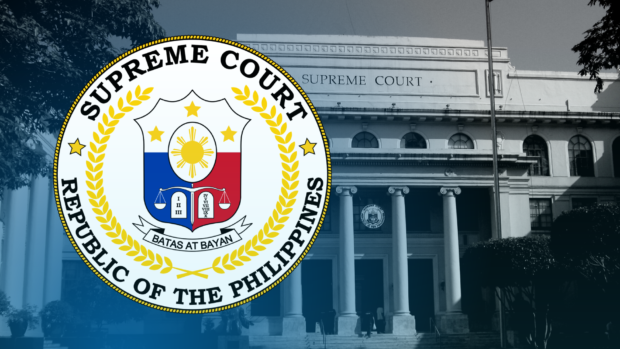Supreme Court sets guidelines on plea-bargain deals
MANILA, Philippines — The Supreme Court clarified that a drug-dependency test is not required for the approval or denial of a plea-bargaining proposal in drug cases.
In a decision published on Thursday, the high tribunal said in approving plea-bargaining proposals, the trial court must evaluate instead the character of the accused, “whether he or she is a recidivist or a habitual offender, known in the community as a drug addict and troublemaker, one who has undergone rehabilitation but had a relapse, and one who has been charged many times.”
“After approval of a plea-bargaining proposal, trial courts shall then require the conduct of a drug-dependency assessment of the accused, not as a condition sine qua non (without which, not) for the plea bargaining but instead to ensure the applicant undergoes treatment and rehabilitation or counseling if needed,” the court said in a 16-page decision written by Associate Justice Henri Inting.
The SC cited the case of People vs Montierro, which underscored the plea-bargaining mechanism in criminal procedure “is geared toward achieving an efficient, speedy, and inexpensive disposition of a case.”
As pointed out by Associate Justice Amy Lazaro-Javier in her opinion on the Montierro case, requiring a drug test early on in the procedure “will unnecessarily delay the disposition of the criminal case, precisely as there is no available data on the waiting and processing period for a drug-dependency assessment.”
Article continues after this advertisementTrial court’s call
The court issued the clarification in the petition for review on certiorari filed by Manuel Bason, an individual charged with possession and sale or distribution of dangerous drugs, in violation of Republic Act No. 9165.
Article continues after this advertisementBason argued the Court of Appeals (CA) erred in its ruling that the Regional Trial Court (RTC) of Roxas City in Capiz province acted with grave abuse of discretion when the trial court granted his plea-bargaining proposal despite the prosecution’s objection.
The SC ruled to set aside the CA decision and resolution in 2021 and remanded the case of Bason to the court of origin.
The high court added if the RTC finds Bason qualified to avail himself of the benefits of plea-bargaining, only then will he be subjected to undergo a drug-dependency assessment.
